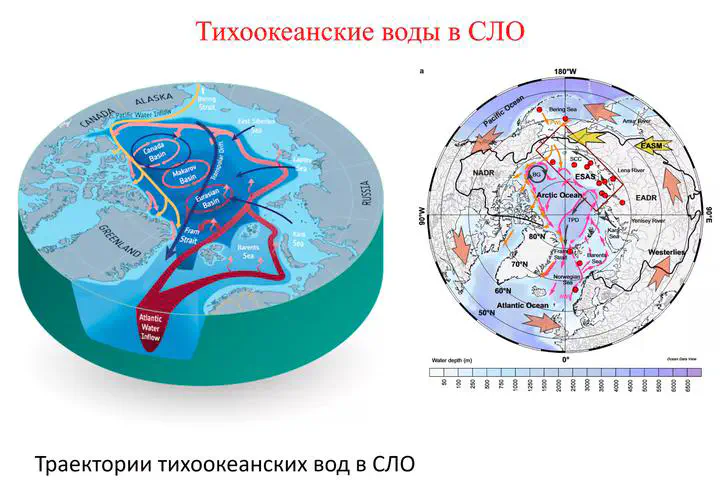Alexander Osadchiev: The Floating University Expedition to the Chukchi Sea and the Arctic Ocean (September–October 2025)

In his talk, Alexander Osadchiev discussed the key findings from the Floating University expedition carried out in September–October 2025 in the Chukchi Sea and the northernmost part of the Pacific–Arctic gateway. The mission aimed to investigate the structure and dynamics of Pacific-derived waters forming the intermediate layer between surface and Atlantic waters, and to examine how river plumes interact with these water masses. Despite the region’s complex logistics and challenging ice conditions, the expedition achieved one of the most comprehensive field programs in recent Russian Arctic research.
A central focus of the presentation was the behavior of the Lena River plume. Recent observations show that it can extend as far as the Bering Strait, where it interacts and mixes with Pacific waters, creating transitional layers previously misidentified as Alaskan Coastal Waters. Using shipborne CTD measurements, satellite salinity data, and sea-ice observations, the team reconstructed the spatial extent and variability of the plume, identifying both cold and unusually warm variants depending on seasonal and local conditions.
The expedition also documented distinct winter water masses — dense near-bottom layers preserving the salinity and temperature signatures of the previous year’s surface conditions. These findings indicate that the vertical and horizontal structure of Arctic waters is far more variable than previously assumed. Osadchiev emphasized that current temperature–salinity classifications may oversimplify real oceanographic processes and that Arctic hydrography is undergoing rapid transformation under warming conditions. The expedition’s results provide a valuable observational basis for improving numerical models of Arctic circulation and freshwater balance.